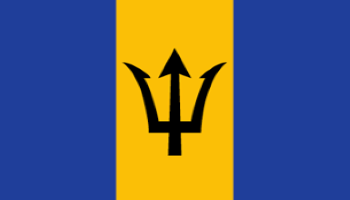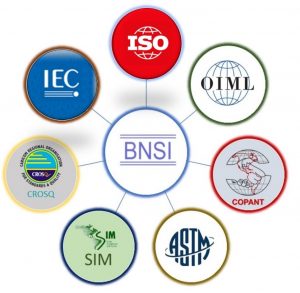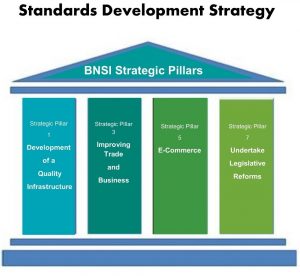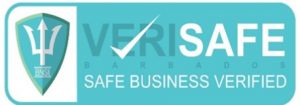
Address

Barbados National Standards Institution
Head Office: The Small Business Centre
Fontabelle
St. Michael
Laboratory: “Flodden”
Culloden Road
St. Michael
Contact Information
Tel – (office): 1 (246) 426-3870
Tel – (laboratory): 1 (246) 436-1495
Website: www.bnsibarbados.org
Email: bnsi.office@barbados.gov.bb
Social media: Facebook, Instagram
About BNSI
The Barbados National Standards Institution was established in 1973 as a joint venture between the Government of Barbados and the private sector under the Companies Act. It is a non-profit benevolent organization and consists of administrative offices and a laboratory complex.
History
Work towards the establishment of BNSI began in 1966 with the decision of the then CARIFTA Council of Ministers that every participating country should establish a Bureau of Standards to protect regional and national consumers in the increasing exchange of goods and services and initiation and extension of industrialization.
A study was therefore done in 1967 on the feasibility of a National Standards Body in Barbados. During the same year. Barbados, through the then Economic Planning Unit, became a Correspondent Member of the International Organization for Standardization.
Following another UNIDO Study in 1971, the BNSI formally established de jure in February 1973, as a joint venture between the Government of Barbados and the Private Sector under the Companies Act. It is non-profit and registered “benevolent” organization.
In 1973, BNSI assumed the membership for Barbados in the ISO. Barbados, through BNSI, became a full member of ISO in 1999.
In 1984, BNSI became the National Contact Point for Codex Alimentarius matters.
The UNIDO/Government of Barbados projects for the “organization and administration of the Barbados National Standards Institution 1973 – 1976 and 1978 – 1981” saw the development of the Institution. BNSI occupied premises at Government Headquarters and the old Bay Street Boys’ School before taking possession of its present accommodation at “Flodden”, Culloden Road on 1975.
A Laboratory Complex was completed in 1977. It houses the following laboratories:
- Metrology
- Textile
- Engineering
- Chemistry/Microbiology
A Soils and Materials Testing facility was included in 1983.
Barbados, through the BNSI, was instrumental in establishing the Caribbean Common Market Standards Council (CCMSC) in 1976, and featured prominently in its work. Barbados was also instrumental in establishing the CARICOM Organization for Standards and Quality (CROSQ) in 2003 under the revised treaty of Chaguaramas. CROSQ replaced the CCMSC as the organization to deal with regional standards matters.

Functions
The functions of the BNSI are:
- Prepare, implement and promote the use of national, regional and international standards for product and services.
- Revise, alter and amend these standards from time to time.
- Assist in established new industries in Barbados.
- Maintain laboratories for testing and conducting investigations or research as needed.
- Provide calibration facilities and be the custodian of national standards of length, capacity, temperature, electrical measurements and mass.
- Collect and disseminate information on standardization and its related activities.
- Promote quality assurance and simplification in industry and commerce.
- Promote the revision of relevant legislation to reflect current requirements in standards-related activities.
- Certify products and processes that conform to national standards.
Services
BNSI offers the following services to industry:
- Standards development and information;
- Metrology – Weights and Measures, Calibrations and Verifications;
- ISO 9000 (quality management) facilitation;
- Soils and materials testing;
- Certification of products under the BNSI Certification Marking Scheme;
- Product development and testing of products;
- Technical advice for metrication;
- Testing of products.
Mission Statement
To facilitate, through standardization and its related activities the international competitiveness of Barbadian goods and services, the protection of consumers and the harmonious development of the sectors of the economy.

Objectives
The objectives of the BNSI are to facilitate trade and the international competitiveness of Barbadian goods and services, the protection of consumers and the harmonious development of the sectors of the economy, through the development of standards, revision and amendment ofthese standards from time to time, testing of products for conformity to these standards, certifiction of products to national standards, accreditation to ensure that those who carry out testing, certification and inspection are competent to do so, and calibration of measures (including mass, volume, temperature and length).

Legislation
Legislation giving legal force to the work of BNSI includes:
- The Standards Act, 2006-5;
- The Weights and Measures Act, Cap 331
- The Weights and Measures Regulations (1985).
- The BNSI Certification Marks Regulations (1982).
BNSI Membership Organisations
BNSI maintained membership with the following organizations:
- International Organization for Standardization (ISO);
- International Organization of Legal Metrology (OIML);
- Pan-American Standards Commission (COPANT);
- Inter-American Metrology System (SIM);
- ASTM International (ASTM);
- CARICOM Regional Organisation for Standards and Quality (CROSQ); and
- Affiliate Country Programme of the International Electrotechnical Commission (IEC).
BNSI is the National Contact Point for Codex Alimentarius matters and the World Trade Organization Technical Barriers to Trade (TBT) Enquiry Point for Barbados.

BNSI Board Members

“Our mandate is to take the Barbados National Standards Institution to the next level, in conformity with international standards in standards development, testing, certification, accreditation, labelling and metrology. There is immense revenue earning potential to be unlocked within the BNSI, and the Board has been working assiduously to ensure that BNSI will soon be able to compete with its international counterparts.”
The new Board of Directors comprises of the following:
1) Mr. Ryan R Brathwaite (Chairman), Engineer and CEO of TicketLinkz and Hackleton Construction.
2) Mrs. Ruth Holder – Consultant;
3) Mrs. Nicole Foster-Clarke – Attorney-at-Law and Deputy Dean of the Faculty of Law, UWI Cave Hill;
4) Ms. Fiona Hinds – Attorney-at-Lay, Q.C.;
5) Mr. Kenneth Went – General Manager, Axcel Finance;
6) Mr. Glenn Thorpe – Engineer
7) The Permanent Secretary in the Ministry of Energy, Small Business and Entrepreneurship – Mr. Esworth Reid
8) Barbados Light & Power – Mr. Rohan Seale
9) Barbados Investment and Development Corporation (BIDC) – Mrs. Sonja Trotman
10) Barbados Association of Professional Engineers – Lt. Col. Trevor Browne (Deputy Chairman)
11) Barbados Manufacturers Association – Ms. Shardae Boyce.
12) Chief Medical Officer – ex-officio
13) Chief Agricultural Officer – ex-officio

The BNSI Work Programme 2021-2022 will specifically support the key strategic pillars and goals of the Ministry as outlined below:
Strategic Pillar 1 – Development of a Quality Infrastructure
i)The development of the National Quality Infrastructure (NQI);
ii)The development of a National Quality Policy (NQP) for Barbados;
iii) The development an ecosystem of quality institutions, policies, regulations and systems;
iv)To ensure that consumers receive quality goods and services;
v)To re-position the skill, structure and technical capacity of the Institution, along with other quality institutions for effectiveness.
Strategic Pillar 3 – Improving Trade and Business Facilitation
i)To support the improvement of Barbados’ global and competitiveness rankings in the area of trade and business facilitation.
Strategic Pillar 5 – E-Commerce
i)To create and improve communication partnerships with relevant state agencies and the private sector.
Strategic Pillar 7 – Undertake Legislative Reforms
i)Repeal and Replace the Weights and Measures Act (replaced by the Barbados National Metrology Act)
ii)Development of a National Quality Policy (NQP)
iii) Development and Adoption of Standards in support of the National Policy
- Planning and Development (Amendment) Bill
- Barbados National Building Code (BNBC)
- Control of Disposable Plastics Act
- Barbados National Energy Policy (BNEP)
- CARICOM Regional Energy Efficiency Building Code
- Energy Efficient Standards:
- Household Refrigerators
- Air Conditioners
- Compact Fluorescent Lights
- Light Emitting Diodes
- Labelling of Pre-packaged Foods

The Safe Business Programme
The COVID-19 pandemic has severely impacted business in Barbados. The Barbados National Standards Institution joins you in bridging-the-gap in the fight against COVID-19 by inviting you to display our ‘BNSI Safe Business Verification Stamp’.
We welcome all businesses, micro, small and medium enterprises, large companies, whether you are a bank, a supermarket, barbershop, salons, or pharmacy, here is how you can manage the risks associated with COVID-19 to protect your customers’ health and safety.
The ‘BNSI Safe Business Verification Stamp’ allows your company to visibly indicate that your organization has implemented safe protocols to protect customers and employees from COVID-19. These protocols are based on international standards and international best practices of health and safety, cleaning and sanitizing procedures, safe return to work guidelines and servicing customers.
The BNSI Safe Business Verification Stamp’ is a valuable tool in communicating to your employees, customers and vendors of your primary objective to protect them by creating a safe space. The BNSI Safe Business Verification Stamp’ creates customer trust and confidence, which attracts customers and generates more revenue. In these trying economic times it is a useful method of rebuilding business activity and ensuring customer loyalty.
We invite you to enroll in the BNSI Safe Business Verification Programme by becoming a member. We look forward to your participation as we seek to build a safe working environment for all businesses. Let the BNSI Safe Business Verification Stamp’ do the communicating for you.
